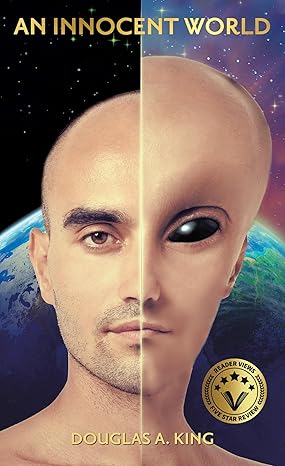An exciting journey for thoughtful and open-minded readers.
The Tree of Life and the Tree of Knowledge of Good and Evil are dramatic features of the Bible’s Genesis account. Yet, Christians aren’t the only humans to revere an ancient lore of trees that impart life, knowledge, spirituality, connection, or wisdom. Stories like this have inspired art, literature, philosophy, religion, science, and culture for millennia. In his book, An Innocent World, Douglas King offers another way to consider such seminal trees. Beginning with Adam and Eve’s fateful decision and extending to many other verses, the Bible conveys the idea of a people born into a state of sin, all due to that devastating choice in Eden. But King posits an alternate reality, a look at things if sin weren’t an inherited trait. “What would our world be like if we were instead given a choice and decided not to be born that way?”
An Innocent World plays out a detailed scenario where humans live free from the burden of sin. What would life be like for these so-called Innocents? What kind of families would they create? Would there be such great chasms between rich and poor? As to arts and entertainment, what sort of books, music, and artwork would they create? And what would these sinless people look like? A glance at the attention-grabbing cover is the first clue to the philosophical thought experiment the author presents. Throughout the chapters, the choice of which tree to eat from is weighed, comparing the experience of the Guilty, our familiar life filled with suffering, to the immortal path of the Innocents, who don’t understand the difference between good and evil. What sounds like an obvious choice, whether to live as an Innocent or one of the Guilty, is tempered by the assumption that suffering is desirable as it builds character, which ultimately leads to meeting God face to face.
Some Christians may take issue with the author’s presumptions on intelligent life on other planets, humans living multiple lives, or even the premise that the trees in the garden are more than just symbolic. Regardless of personal beliefs, however, King’s logic is well-established, taking willing audiences deep into an extensive rabbit hole whose labyrinthine tunnels will open unique ways of looking at things. Though it is a delight to imagine life with excellent health, happy marriages, abundant food, and decent neighbors, the author paints the need for suffering as the path to God’s presence. An earnest blend of imagination, deduction, contemplation, and sincere spirituality, An Innocent World is an exciting journey for thoughtful and open-minded readers.







